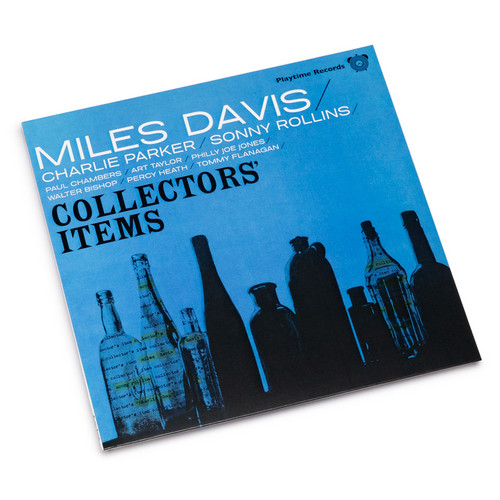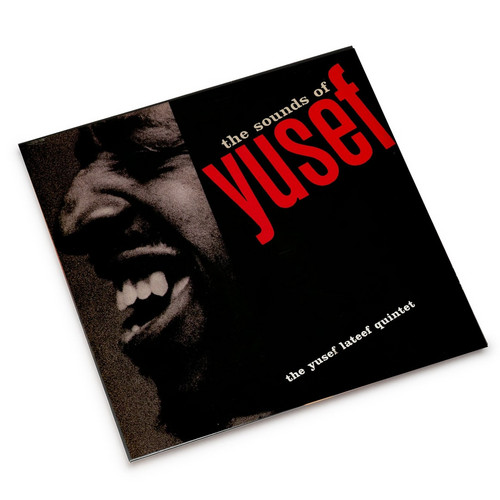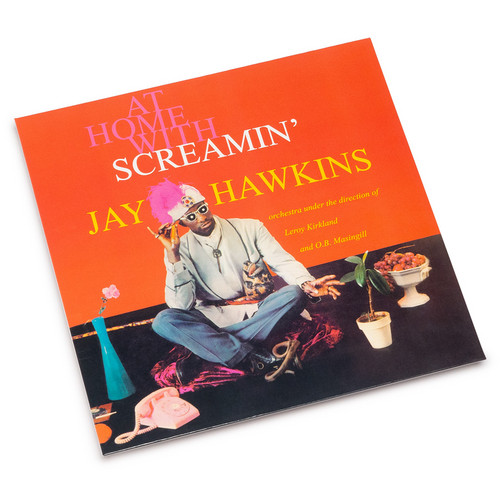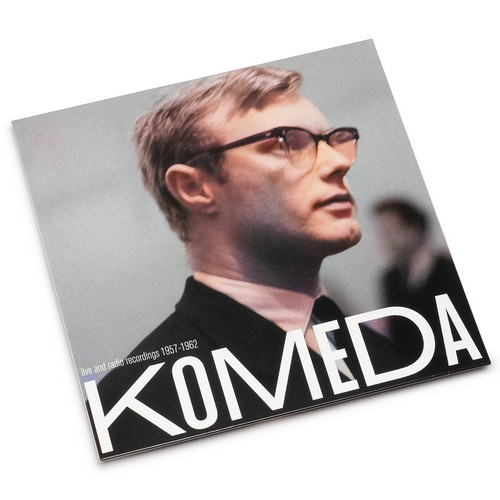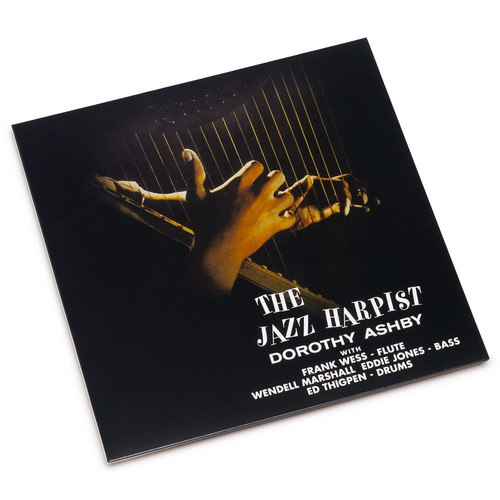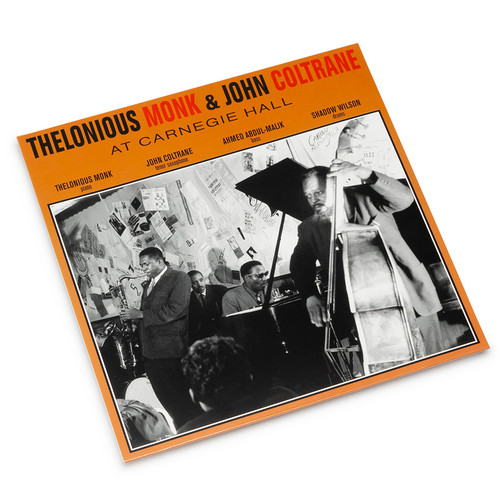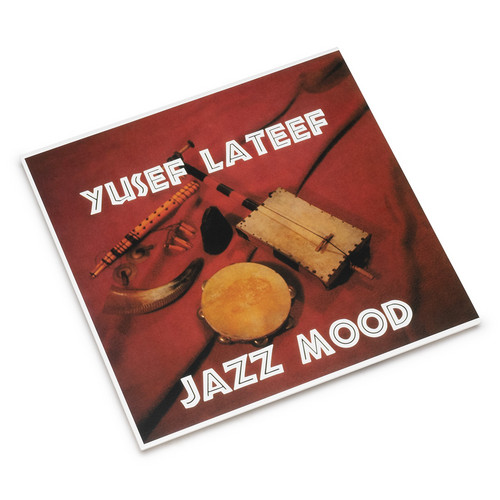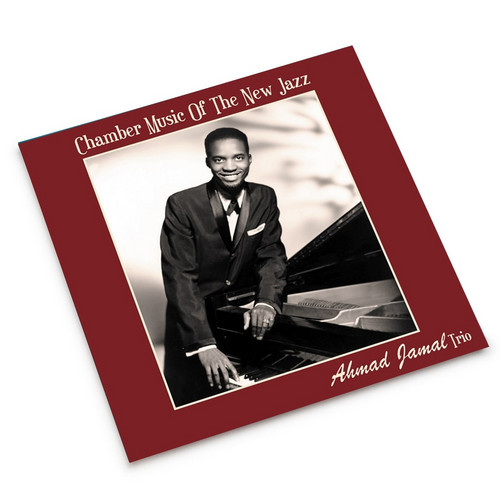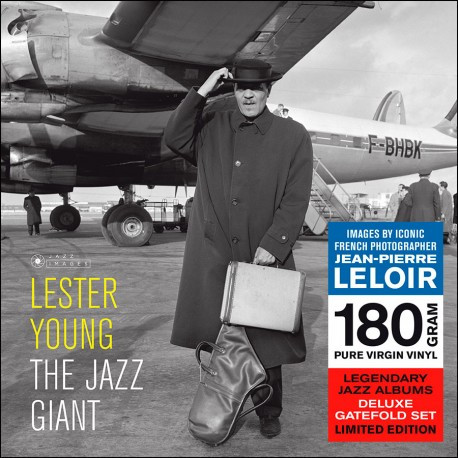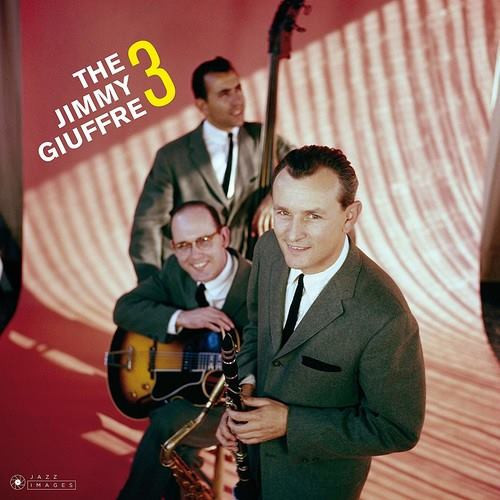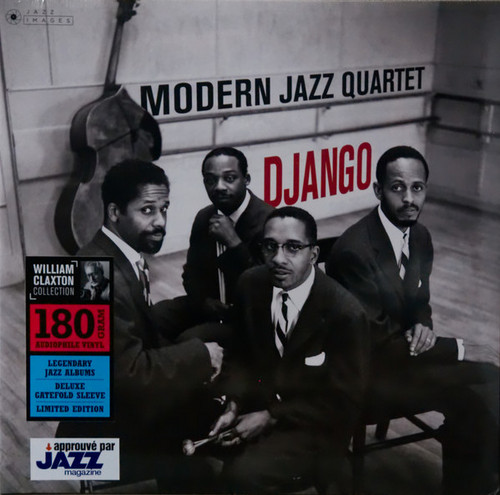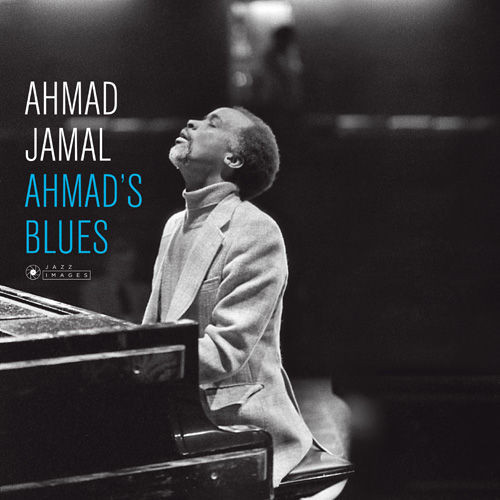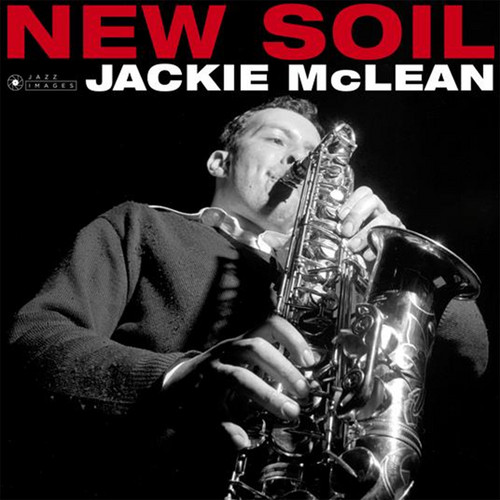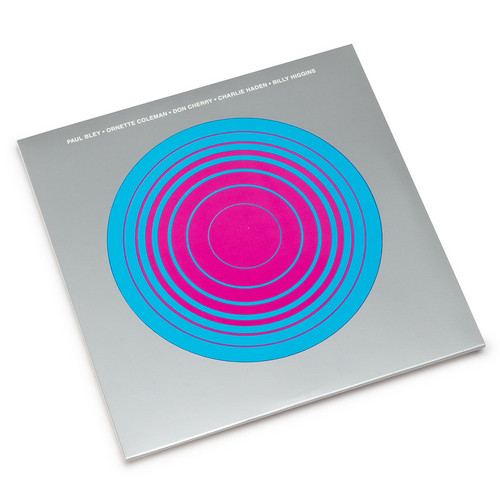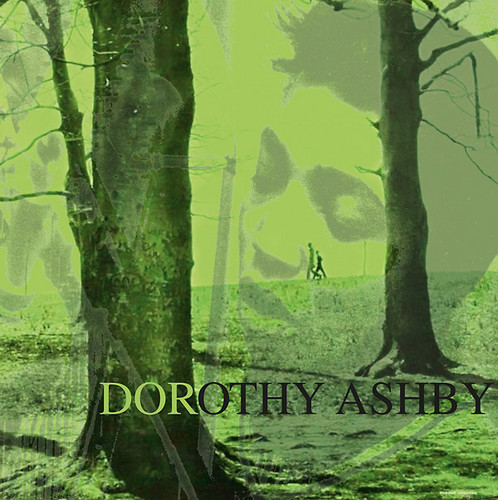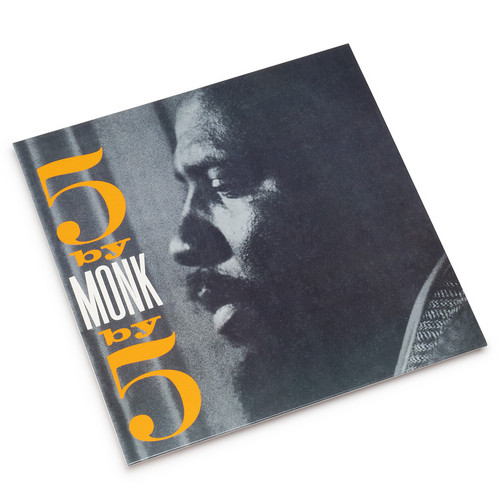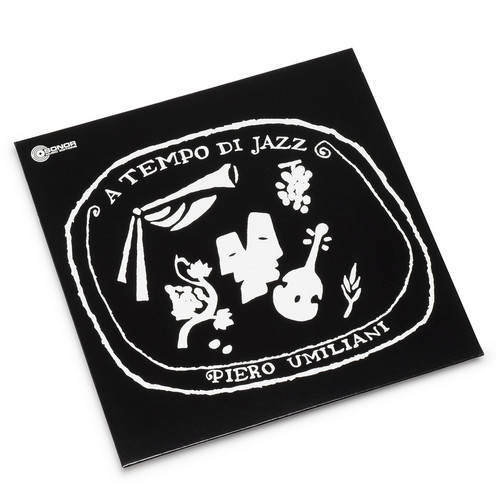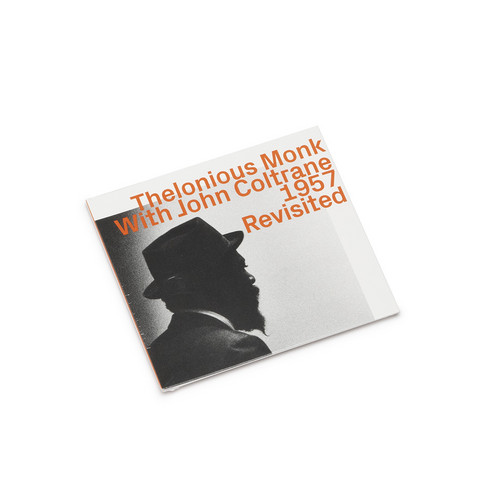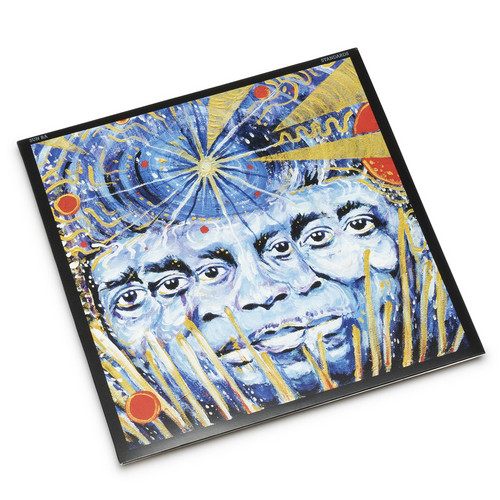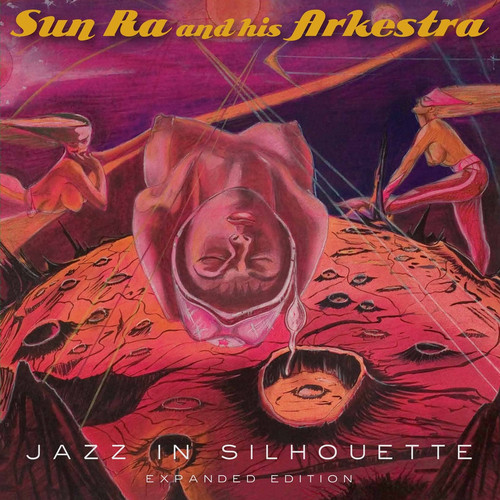Jazz /
Collector's Item
When Ira Gitler, jazz journalist and producer at Prestige, curated this album, the term "collector" was already well-established among music enthusiasts. The pursuit of out-of-print recordings, old 78 rpm discs, and unreleased material had reached an intensity comparable to the fervor seen in the vinyl-collecting market decades later. Gitler aimed to offer jazz fans unreleased Prestige recordings while meeting expectations for the amount of music on an LP. Initially dismissed as a mere compilati…
The Sounds of Yusef
Yusef Lateef walks into Rudy Van Gelder's studio with a vision that won't have a proper name for another two decades. What to call music that swings hard as any bebop session but incorporates sounds from beyond the American jazz tradition? "Ethnic materials," they'd say awkwardly. "World music," they'd say later. Lateef just called it music - his music - and got to work. Sounds of Yusef, recorded for Prestige, captures Lateef at a pivotal moment. This is before the radical experiments of the 196…
At Home With Screamin‘ Jay Hawkins
By far one of the most outrageous performers of the early years of rock, prone to emerging from coffins on stage, with a flaming skull named Henry as his constant companion, Screamin' Jay was an insanely theatrical figure long before it was even remotely acceptable. His 1958 debut, At Home, featuring his legendary "I Put A Spell On You," along with surreal hits like "Hong Kong," "Take Me Back To The Boot And Saddle," or his wild-ass reinventions of old standards like "I Love Paris" and "Deep Pur…
Live and Radio Recordings 1957-1962
Spanning five pivotal years, Live and Radio Recordings 1957-1962 captures Krzysztof Komeda at the edge of Polish jazz’s modernist awakening. These performances surge with lyricism and quiet provocation, showcasing a composer whose restlessly poetic imagination reshaped European jazz sensibilities.
Jazz Harpist
*Back in print by popular demand!* This is Dorothy Ashby's debut album, originally released in 1957 by the Regent label. Recognized as the woman who gave the harp a jazz voice, here Ashby is at the head of a highly distinctive combo featuring Frank Wess on flute, Eddie Jones or Wendell Marshall on bass and master Ed Thigpen on drums. The Jazz Harpist is an unprecedented mix of evocative classic sounds and jazz soul, awarded by Allmusic as her first and best album, period!
At Carnegie Hall
Unearthed in 2005 by staff at the Library of Congress, At Carnegie Hall is an incredible performance delivered on 29 November 1957 by jazz giants Monk and Coltrane, together with bassist Ahmed Abdul-Malik and drummer Shadow Wilson. Far superior to that captured at the Five Spot five months earlier, At Carnegie Hall shows Coltrane finding his own sax sphere as Monk explores the limits of experimental excursions on the keyboard; Monk is in his element on ‘Crepuscule With Nellie’ and Trane shows hi…
Jazz Mood
*2024 repress* A multi-instrumentalist who reconfigured jazz many times during his long career, Yusef Lateef came to prominence in the late 1950s, after having toured with Dizzy Gillespie. Jazz Mood dates from 1957, when his Quintet had some of Detroit's finest, including Alice Coltrane's brother Ernest Farrow on bass and future Jazz Messengers Curtis Fuller on trombone. The use of an argol on 'Metaphor' and a rabat and finger cymbals on 'Morning' point to Lateef's Islamic grounding and his beli…
Chamber Music of the New Jazz
Before Miles Davis obsessed over his sense of space. Before Gil Evans studied his orchestral approach to the trio format. Before "less is more" became a jazz cliché. There was this - Ahmad Jamal's early trio, captured on the short-lived Parrot label, playing music so sophisticated, so elegant, so precisely constructed that it would redefine what a jazz piano trio could be. Chamber Music of the New Jazz isn't just a great album title - it's a manifesto. Jamal, Ray Crawford (guitar), and Israel Cr…
The Jazz Giant
*2024 stock* "Some of Lester Young’s sessions made in the mid-1950s find him in bad shape, due to a combination of personal problems and alcoholism that would prematurely end his life on March 15, 1959 at the age of 49. However, when producer Norman Granz had the brilliant idea of reuniting him with his old musical companions Roy Eldridge, Vic Dickenson, Teddy Wilson, Freddie Green, Gene Ramey and Jo Jones, the result was a highly spirited and happy date that is presented here in its entirety." …
The Jimmy Giuffre 3
*2024 stock* "Jimmy Guiffre 3 features the first version of Giuffre's 3. With guitarist Jim Hall and either Ralph Pena or Jim Atlas on bass, Giuffre is heard on clarinet, tenor, and baritone. The generally introverted music is wistful, has a fair amount of variety, and is melodic while still sounding advanced. In addition to the nine original songs (including the earliest recording of Giuffre's classic folk song "The Train and the River"). An excellent introduction to Jimmy Giuffre's unique musi…
Django
*2024 stock* "Classic jazz in construction and execution. The place to begin appreciating the many and great virtues of one of jazz's finest aggregates" - Douglas Payne
"In terms of seminal Modern Jazz Quartet entries, it is hard to exceed the variety of styles and performances gathered on Django." - Lindsay Planer
Ahmad's Blues
*2024 stock* "Someone at the prestigious Verve jazz record company had an idea last summer: to re-release a compilation of recordings by legend jazz pianist Ahmad Jamal’s trio at the clubs of Chicago in 1958, it was a very good idea!
Ahmad’s Blues is a must have for Ahmad Jamal fans and all Jazz fans for that matter. Throughout his long and storied career, Ahmad has demonstrated both technical virtuosity and amazing style and creativity, this early live recording is no exception. With a title tr…
New Soil
*2024 stock* It was Charles Mingus who, in the mid-1950s, first tried to alter Jackie McLean’s playing style, which was fully entrenched in Charlie Parker’s sound at the time. “I never really sounded like Bird, but that was my mission”, said McLean during a WBGO radiointerview. “I didn’t care if people said that I copied him; I loved Bird’s playing so much. But Mingus was the one that really pushed me away from the idea and forced me into thinking about having an individual sound and concept.” M…
Live at the Hillcrest Club 1958
This record marks a turning point in jazz history. It may be the earliest recorded example of what Ornette Coleman later called "free jazz," and it represents the first rumblings of the revolutionary movement which eventually shifted jazz thinking away from bebop. This double LP includes the complete show recorded live at The Hillcrest Club of Los Angeles in 1958.
Hip Harp / On A Minor Groove
Doxy present a combined reissue of legendary jazz harpist and poly-instrumentalist Dorothy Ashby's Hip Harp and In A Minor Groove, both released separately in 1958. Both albums feature Frank Wess. Dorothy Ashby had a unique soul jazz harp sound, and although the instrument she used is probably more thought of in terms of bedtime lullabies, she actually makes it swing nicely, and with a soulful sound that draws back to traditions of African stringed instruments. Ashby was part of the same scene a…
5 By Monk By 5
An innovative and idiosyncratic pianist, Thelonious Monk has been hailed as one of Be-Bop’s founding figures, with unexpected melodic shifts and dramatic hesitation hallmarks of his work. Monk By Five is one of the lesser-known sessions recorded for Riverside in the late 1950s and is one worthy of a wider audience; it features the bright swing of the new ‘Jackie-ing’ and the more dissonant ‘Played Twice,’ alongside engaging revisits of ‘Straight No Chaser,’ ‘I Mean You’ and ‘Ask Me Now,’ the int…
A Tempo Di Jazz
Sonor Music Editions proudly presents "A Tempo Di Jazz" by Maestro Piero Umiliani. This lost gem captures the formative years of modern jazz in late 1950s Italy – alongside the legendary Basso-Valdambrini recordings in the early 1960s, as well as the early years of Piero Umiliani's long and prolific career as a composer with over 190 soundtracks, 40 library albums, and 35 TV title themes recorded. A Tempo Di Jazz includes seven original compositions by Piero Umiliani recorded in 1959. Here, at t…
Thelonious Monk With John Coltrane 1957 (Revisited)
Temporary Super Offer! “Working with Monk brought me close to a musical architect of the highest order. I felt I learned from him in every way – through the senses, theoretically, technically. I would talk to Monk about musical problems and he would sit at the piano and show me the answers just by playing them.“ – John Coltrane
Standards
*2023 stock* Sun Ra, the extraordinary, outlandish, and sometimes controversial pianist, is often described as an “acquired taste”, with a massive and diverse catalog. This release is a good place to start for uninitiated or dismissive listeners. The album showcases Ra’s grounding in the jazz tradition, with unique takes on standards like “Time After Time,” “Easy to Love,” and “But Not for Me”. Not unordinary for Sun Ra, the recording process was informal; “Can This Be Love?” was recorded in his…
Jazz In Silhouette
Enshrined in the Penguin Jazz Guide’s "Core Collection", this quintessential platter of Sun Ra’s late 1950s Chicago ensemble showcases the brilliant tenor sax stylings of John Gilmore, and introduces Arkestra mainstays Marshall Allen, Pat Patrick, and Ronnie Boykins. Recorded and issued in 1959, it marks a coda for the bandleader’s bebop/hard-bop stage, as his interstellar traveler persona began to transform the band (and the music). Many of the early works on these recordings would remain stapl…
